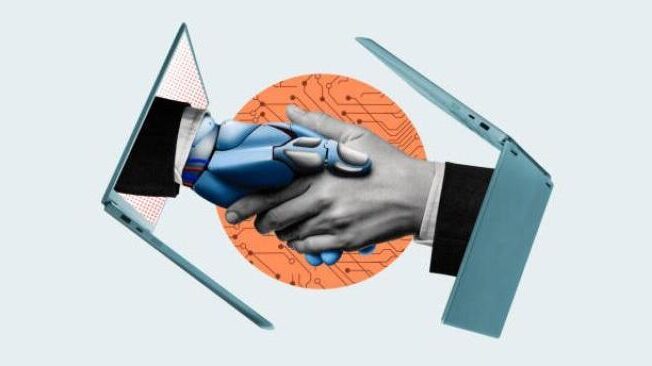BTN News: The rapid integration of artificial intelligence (AI) in education is transforming the way we access and process information. No longer limited to the physical walls of libraries or the pages of textbooks, today’s students can retrieve answers instantly through AI tools like ChatGPT. However, this shift also brings concerns about the impact of AI on learning, specifically its effects on critical thinking, creativity, and memory. As AI becomes increasingly prevalent, educators, researchers, and students alike are grappling with the question: How is AI reshaping the learning experience?
How AI Transforms Education: Efficiency or Shortcut?
The introduction of AI into classrooms has undeniably streamlined access to information. With AI tools, learners can quickly look up facts, generate essays, or solve complex equations in minutes. This rapid response to queries has drastically shifted the educational landscape compared to past decades, when students had to rely on physical libraries and manual research.
However, Pedro Benedetti, a bioengineer and doctoral student at the Institute of Technology in Buenos Aires (ITBA), raises an important point: AI is not inherently good or bad—it all depends on how it’s used. The convenience of AI, while undeniably beneficial, can encourage shortcuts in learning, where students rely heavily on AI to complete tasks without fully understanding the underlying concepts.
The Cognitive Cost of AI: Procrastination and Memory Decline
One growing concern is the over-reliance on AI tools like ChatGPT. Research has shown that excessive use of AI can lead to negative cognitive effects such as procrastination and weakened memory. Benedetti, who also teaches at ITBA, observes that students often use AI to find answers to their homework without understanding why the solution is correct. This, he warns, bypasses the critical learning process of hypothesis testing and problem-solving—essential steps for developing long-term memory.
A recent study supports this observation, linking excessive AI use in education to a decline in students’ ability to think critically and retain information. The instant gratification provided by AI tools may undermine the mental effort required to analyze, evaluate, and internalize new knowledge.
AI and the Erosion of Creativity
Clara Irurzun Falcón, a neuropsychologist and professor, shares similar concerns, particularly regarding AI’s effect on creativity. A UK-based study found that while AI-assisted writing led to more creative and polished stories, it also produced narratives that were strikingly similar to one another. This uniformity poses a paradox: AI can enhance individual creativity but may stifle diversity at a broader level, leading to a more homogenized output.
Falcón also highlights the risks of cognitive atrophy in both children and adults. For younger students, reliance on AI could hinder the development of essential cognitive skills, like critical thinking and problem-solving. In adults, instant access to information via AI tools could diminish executive functions such as long-term planning and sustained attention, essential for complex decision-making.
Balancing AI with Critical Thinking
Despite these concerns, AI also offers significant advantages, especially in personalized learning. Applications like Duolingo use AI to tailor educational experiences to each user’s needs, adapting lessons and exercises based on performance. This capability allows for a more customized approach to education, catering to individual learning speeds and styles.
However, both Benedetti and Falcón emphasize that the human element in education cannot be overlooked. AI should not be seen as a replacement for critical thinking or creativity but as a tool to support these skills. The real challenge for educators is to ensure that students are using AI responsibly, engaging with the material, and maintaining the cognitive discipline required for deep learning.
AI’s Role in Fostering Efficiency and Creativity
While AI’s potential to free up time for more creative and critical thinking is promising, educators must find the right balance. Gabriela González Aleman, director of the psychology department at University Catholic Argentina (UCA), likens the advent of AI to past technological innovations. Just as automation allowed humans to shift focus from repetitive tasks to more complex problems, AI can liberate students from tedious work, enabling them to engage with higher-level thinking.
Yet, González Aleman cautions that the interpretation of AI-generated information remains the responsibility of the user. AI may offer solutions, but it’s up to students and educators to verify the accuracy and relevance of those solutions. This underscores the need for maintaining strong judgment and critical analysis alongside technological advances.
Educational Institutions Must Lead the Way
Falcón and Benedetti agree that educational institutions must take an active role in integrating AI responsibly. Teachers need to create environments where AI is seen as a tool for enhancing, not replacing, cognitive effort. The goal should be to foster AI literacy, where students learn to question, evaluate, and use AI critically rather than relying on it for easy answers.
Furthermore, Falcón stresses the importance of equitable access to AI resources. With AI technology expanding rapidly, it’s crucial to ensure that all students—regardless of socioeconomic background—can benefit from these tools without exacerbating existing inequalities.
Conclusion: Navigating the Future of AI in Education
As AI continues to evolve and become an integral part of the educational landscape, the challenge lies in maximizing its potential while safeguarding critical cognitive skills. AI in education offers unparalleled opportunities for personalized learning and efficiency, but it also poses risks to memory, creativity, and critical thinking if used irresponsibly. Educators, students, and policymakers must work together to ensure that AI serves as an aid to learning, not a crutch that diminishes it.
Ultimately, a balanced approach will allow AI to complement human intelligence, enriching the educational experience without sacrificing the critical elements of creativity, analysis, and independent thought.


